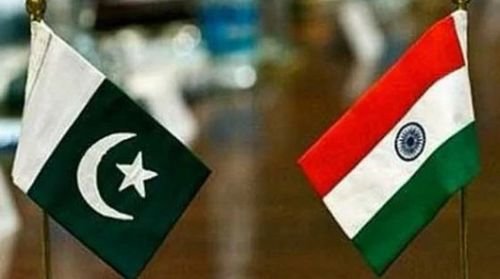India has strongly rejected Pakistan's repeated references to Jammu and Kashmir (J&K) at the United Nations, reiterating its sovereignty over the region and demanding that Pakistan vacate the occupied territory. This strong stance was expressed by India's Permanent Representative to the United Nations, Ambassador Parvathaneni Harish, during the Security Council debate on peacekeeping reforms on Tuesday, March 25, 2025. Ambassador Harish condemned Pakistan's attempts to divert attention from the core discussions on peacekeeping by raising the Kashmir issue, and stressed that such references are "inappropriate" and do not validate Pakistan's illegal claims. "India is constrained to note that the representative of Pakistan has once again made inappropriate remarks on the Indian Union Territory of Jammu and Kashmir. Such repeated references neither validate their illegal claims nor justify their state-sponsored cross-border terrorism," he said. Context and background
The issue cropped up when Special Assistant to the Pakistani Prime Minister Syed Tariq Fatami raised the issue of Jammu and Kashmir during the Security Council discussions on UN peacekeeping reforms. In response, Harish reaffirmed India’s position, saying Pakistan’s actions, including its continued occupation of Jammu and Kashmir, are in violation of international law.

India has consistently maintained its stand on the Jammu and Kashmir issue, stressing that the region “was, is and will always remain an integral part of India.” This position was also reiterated at the United Nations Human Rights Council (UNHRC) meeting in Geneva last week, where India criticised Pakistan for its allegations of human rights violations in Jammu and Kashmir.
India’s stand on peacekeeping reforms
Addressing the Security Council, Harish also highlighted India’s commitment to women’s participation in peacekeeping, mentioning the first conference of women peacekeepers from the global south held recently. He called for Security Council reforms to create a more reflective and representative body in line with current geopolitical realities.
India advocated for adapting UN peacekeeping missions to address modern challenges such as threats from non-state actors and new-age weapons. Harish emphasised the important role of troop and police contributing countries in shaping the mandate and sought adequate funding to meet operational requirements.
Rejection and diplomatic efforts in the past
India has a history of rejecting Pakistan's claims and allegations about Jammu and Kashmir. In a recent podcast, Prime Minister Narendra Modi recalled that he had specially invited his Pakistani counterpart Nawaz Sharif for his swearing-in ceremony in 2014 as a gesture of goodwill. However, he said every noble effort to promote peace was met with hostility and betrayal.
Ministry of External Affairs (MEA) spokesperson, Randhir Jaiswal further clarified that Pakistan's promotion of cross-border terrorism is the "biggest impediment" to peace and security in the region. He said, “The world knows that the real issue is Pakistan’s fostering and sponsoring of cross-border terrorism. Instead of spreading lies, Pakistan must vacate the Indian territory which it has illegally and forcefully occupied.
Conclusion
India’s strong response at the UN underscores its firm stand on Jammu and Kashmir, asserting its sovereignty over the country and seeking a peaceful, terror-free environment for future engagement with Pakistan. The country remains committed to advocating Security Council reforms to address modern challenges in peacekeeping and better reflect current global dynamics.
The event highlights the ongoing tensions between India and Pakistan over the Jammu and Kashmir issue and the importance of international forums in addressing such disputes.